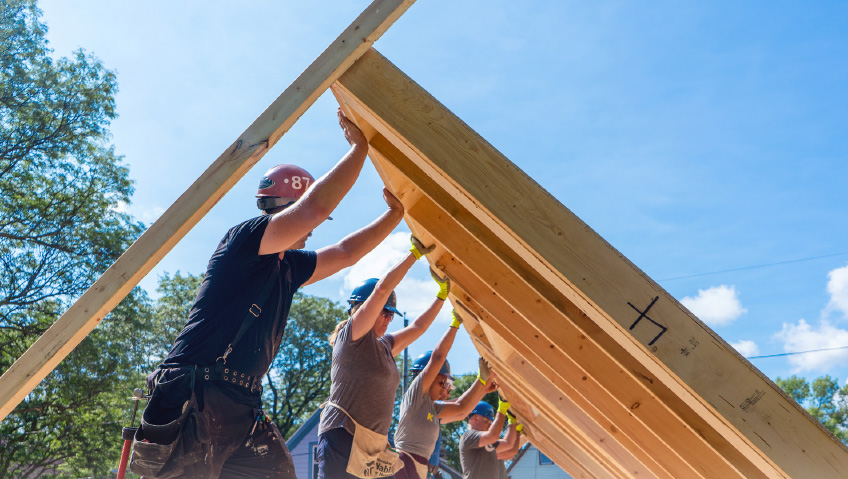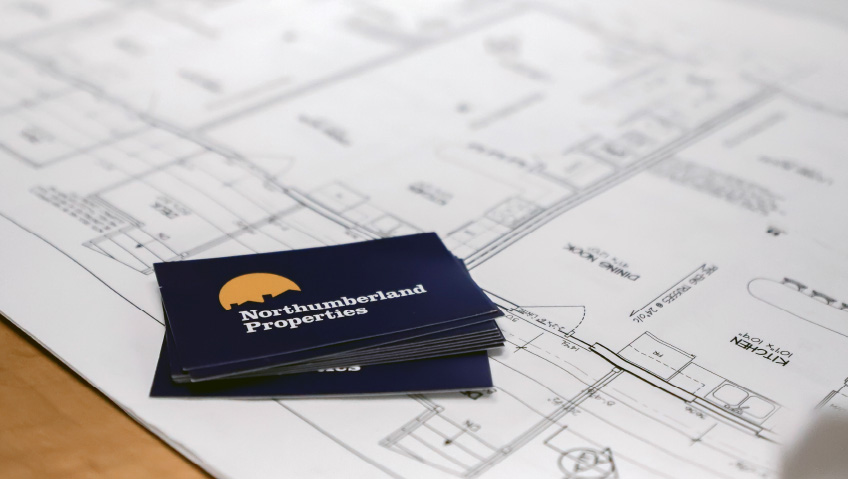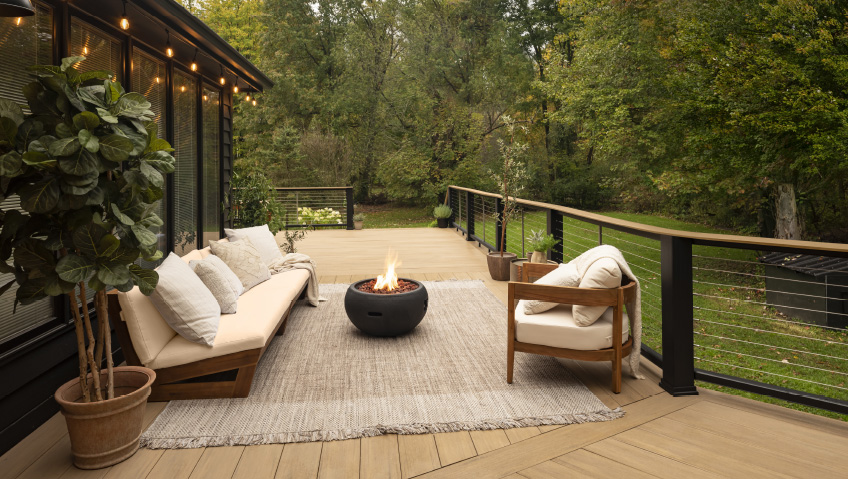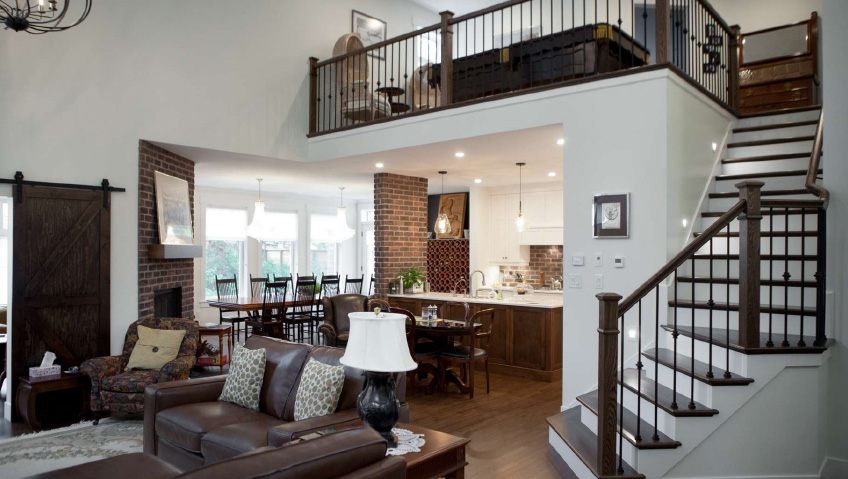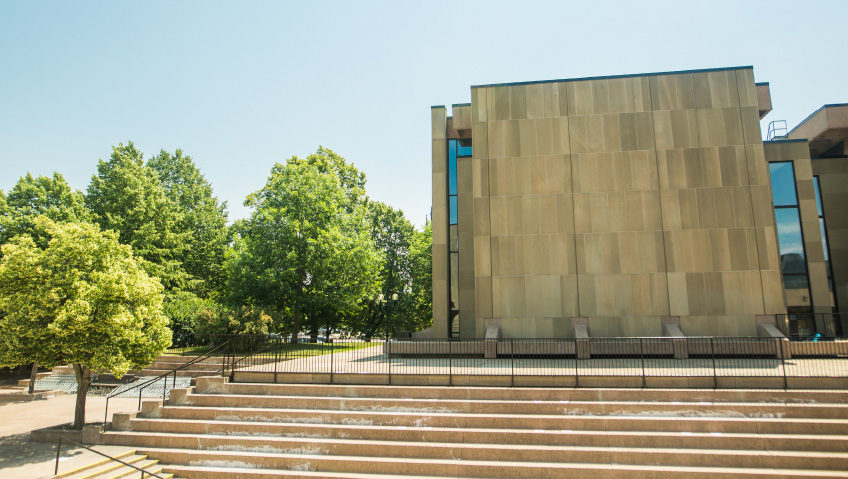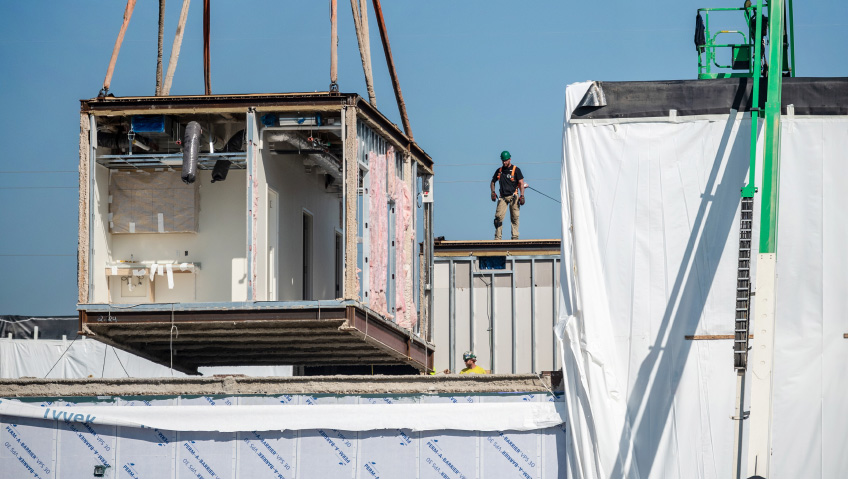Habitat for Humanity is a U.S. non-governmental, tax-exempt Christian nonprofit organization dedicated to improving the lives of people and communities by breaking down the barriers to affordable homeownership. The vision is simple: a world where everyone has a decent place to live. And through the work of its 3,000-plus affiliates in over 70 countries around the world, the organization has helped more than 62 million people improve their living conditions.
“We put God’s love into action by bringing people together to build homes, communities, and hope,” explains Chief Executive Officer of Milwaukee Habitat for Humanity, Brian Sonderman.
For more than 40 years, Milwaukee Habitat for Humanity has brought people and resources together for the common good. Through its builds, its Critical Home Repair (CHR) program, and its ReStore operation, it continues to facilitate change by supporting affordable homeownership projects that are transformative on every level.
Building homes and community
More than providing a safe and adequate place to call home, Milwaukee Habitat for Humanity breaks down barriers for first time homeowners earning below the median income ($47,590 in Wisconsin as of the most recent figures), while supporting those who require critical home repairs to preserve homeownership.
The organization was founded in 1984 by 12 visionaries from the faith community who sought to solve some of the bigger problems that were plaguing the community at the time, chiefly poverty and inequality in Milwaukee’s near north side neighborhoods that were chronically underserviced.
“They didn’t go to the easiest areas to build,” Sonderman explains. “They went to some of the hardest places because they were the most underserved and where people had, in many regards, been left behind. We really stand on the shoulders of that group and continue to honor that legacy by pressing forward and trying to do more,” he says.
To date, the organization has helped over 1,500 families empowering them with a hand up, not a handout, made possible by a dedicated staff and hundreds of skilled volunteers affectionately referred to as “Habituals” who come together at build sites, warehouse facilities, and ReStore locations to help build community. “Habituals contribute upwards of 40,000 hours on the build site and over 20,000 at our ReStores,” explains Al Smith, Milwaukee Habitat for Humanity’s Chief Operating Officer, of the contributions of the team.
This team also includes some very generous corporate sponsors. Sargento and Komatsu have each sponsored and built 41 homes in the city, while Milwaukee Tool has donated over $600,000 in tools and batteries that are imperative to the builds.
The Brewers Community Foundation sponsors a home each year and its players chip in on the build site each spring as the build season is kicked off, which is an especially exciting time of year.
The builds are further supported by A. O. Smith, which supplies water heaters; Johnson Controls, which contributes furnaces and air conditioners; Kohler-supplied faucets, toilets, and sinks; and Whirlpool appliances, the latter of which is a global partner committed to equipping homes at build sites around the world.
Coming together for change
For 40 years, Milwaukee Habitat for Humanity has worked tirelessly to combat inequity through the provision of affordable homeownership, a mission that has only gained importance over time. As it stands, North America is facing a deepening housing crisis, making the work of the organization ever more valuable. Since 1990, home prices in the U.S. have increased six times faster than income, and as Smith notes, “There is a critical shortage of affordable housing that we see, especially for families earning anywhere between 30 to 80 percent of AMI in terms of their income.”
In Milwaukee, one in three renters are spending half or more of their monthly income on housing, as the average cost to rent is $1,800 a month—while the average mortgage is $2,300 if you own your own home. The figures are even more daunting when race is considered.
As Sonderman explains, “In the city of Milwaukee proper, the proportions between white families and African American families that own the home that they live in is about 50 percent and 25 percent respectively. In the Milwaukee Metro Area, the gap is 50 percent: 75 percent of white families own the home they live in, while only 25 percent of African American families do, which is the second largest gap in the United States.”
Habitat for Humanity addresses many of the barriers to homeownership through the creation of affordable pathways for first-time home buyers and the creation of new housing opportunities to renew the aging housing stock in the city. A Milwaukee Habitat for Humanity homeowner, for instance, is paying only $950 monthly to own their own home and they get the opportunity to have a hand in building it themselves, alongside a community of volunteers that are unified in their efforts to make life more affordable and rewarding for the communities of which they are a part.
Transformational work
Indeed, volunteerism is a key part of the organization’s success. From build sites to ReStores, volunteers are the lifeblood of the organization and power the wheels of change. And they too, see benefits from the dedication of their time and effort. The experience is transformative for staff, volunteers, homeowners and their families, and for the communities that receive this love, demonstrating the power of a helping hand and the impact of a caring heart.
“That changes people from the inside out,” says Sonderman of the work the organization does. “One of the best parts of the work that I do is I sign the satisfaction of mortgages each month when people have paid off their mortgagee, because what that tells the homeowner when they get that document is ‘I’ve paid it in full and I own this; it’s mine and I can pass this on to the next generation.’ The pride in those homeowners—in what homeownership has done and the generational change that has occurred—is really remarkable,” he continues, noting that health outcomes improve, educational outcomes improve, and a ripple effect of positive change takes root in the community.
“It is not just shelter; it’s oftentimes the launching point for children to find academic success. It’s oftentimes the launching point for homeowners to form small businesses, to pursue advanced degrees themselves or certifications to advance their own employment opportunities. It is the launching point for neighborhoods and communities.”
Because Milwaukee Habitat for Humanity focuses on clustering its homes, it creates intentional Habitat communities within the larger community that can continue to give back and have a wider impact, which includes global outreach. In addition to its local impact, the organization devotes 10 percent of unrestricted donations to the international Habitat community in El Salvador and Zambia where the work to achieve housing affordability, adequacy, and racial equity continues on a global scale.
Ramping up efforts
Given that demand for affordable housing is at an all-time high, Milwaukee Habitat for Humanity is working closely with several community partners and municipalities to ensure that housing needs are being met and that barriers to homeownership continue to be overcome. This includes building 34 new homes and completing over 100 critical home repairs this year.
As one of the top 30 producing Habitat affiliates in the U.S. for new house production and critical repairs, Sonderman plans to step up the organization’s efforts.
He wants to “meet the moment,” to “step into a place of greater responsibility in terms of helping meet this housing affordability crisis,” he says. “And so our goal is to double in size, which means twice as many volunteers and twice as many funds that need to be raised.”
A tremendous feat to achieve, Milwaukee Habitat for Humanity is up to the task, poised to continue its good work centered on facilitating affordable homeownership and overcoming societal barriers to equality, planting the seeds of change that will have a lasting impact on the communities it serves.
“When homeownership is strong, safety improves, economic stability and opportunity improves,” Sonderman says. “We know how powerful it is, and so it really calls us back to our mission and our vision where everyone has a decent place to live.” This drive fuels the organization to build its capacity to bring affordable homeownership to an even greater number of people in the Milwaukee area and beyond.

